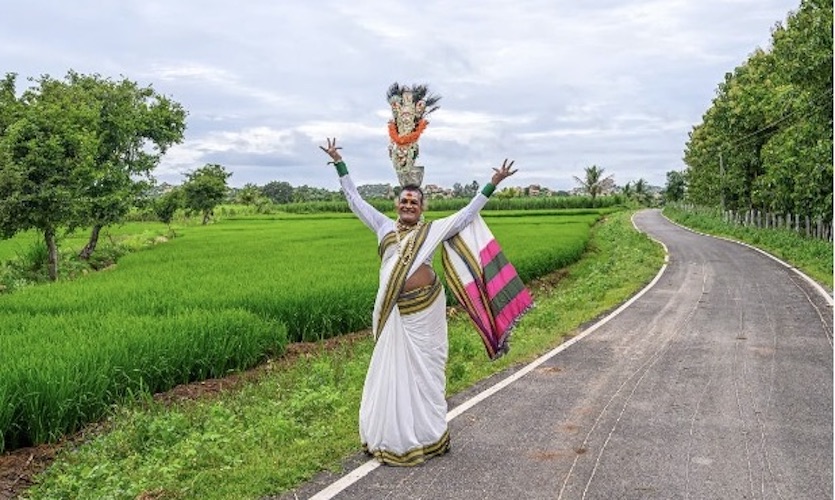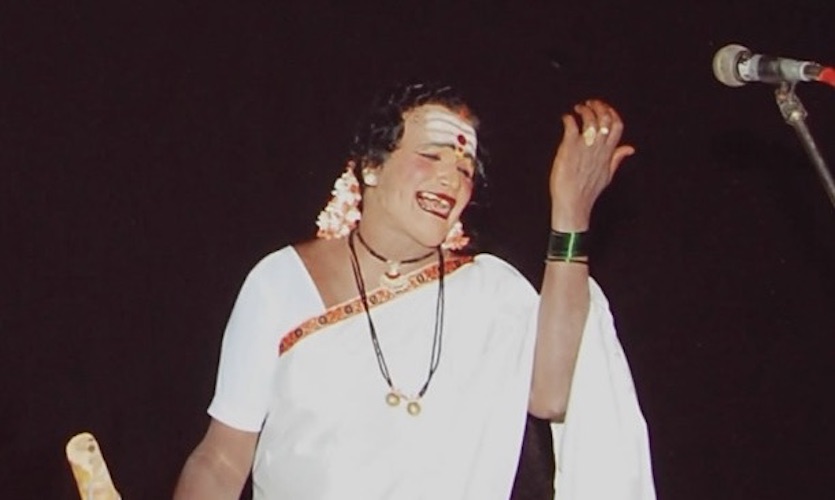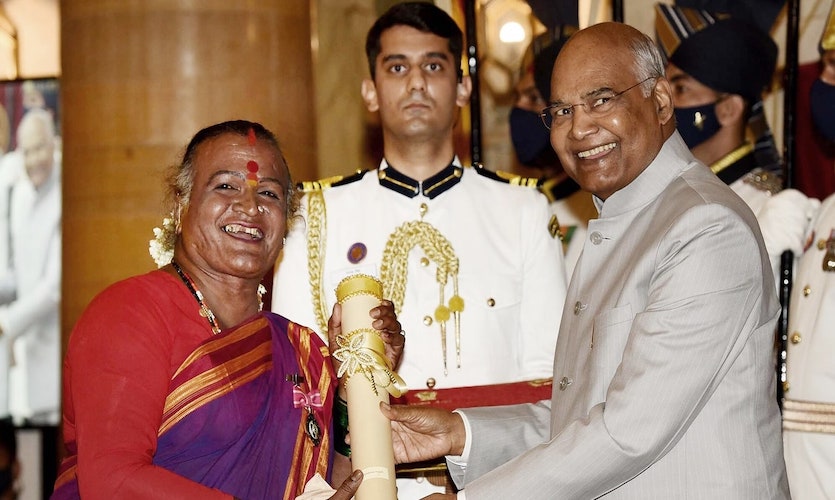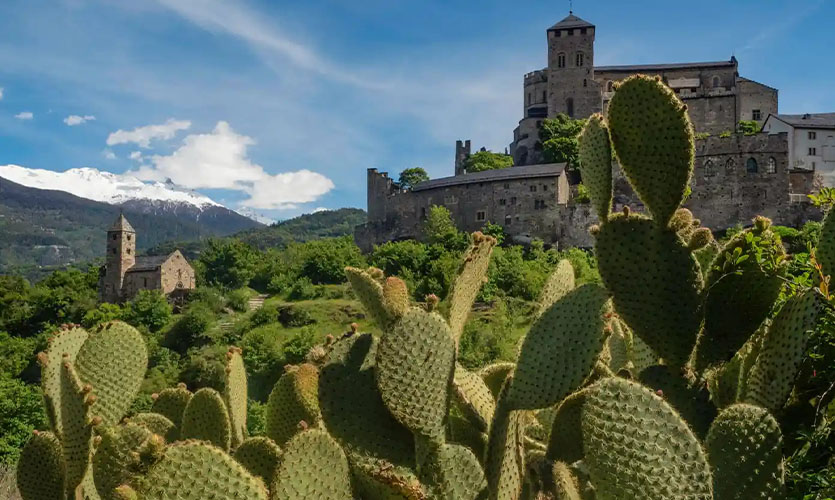Folk dance gave ‘Amma’ a reason to live against all odds and fight societal taboos
People fondly call her ‘Amma’ but she is no ordinary woman, she is a well known Kannada folk dancer and theatre artiste who has popularised the Jogathi Folk Dance form, a ritual dance performed by jogappas, a community of transgenders.
A big red bindi with sindoor, pattu cotton saree, countless glass bangles, and a fascination for gajara (flowers) in hair is Amma’s style statement. She is the much loved and appreciated Manjamma Jogathi aka Manjunatha Shetty, India first trans woman who became the president of Karnataka’s Janapada Academy in 2019. This is the top institute of performing arts in Karnataka.
Manjamma was felicitated in 2021 with the fourth highest civilian award of Padma Shri by President Ramnath Kovind in New Delhi for her incredible efforts in popularising the famous Jogathi Folk Dance performed in North Karnataka, South Maharashtra, and some parts of Andhra Pradesh.
For the last 40 years, Manjamma has been a folk dancer in Jogathi folk dance form. Manjamma does a unique dance with the metal-crafted Yellamma deity placed on her head.

Manjamma recounted how she became a jogathi. She recalled the tough battles for her childhood days. She said, “I was born in a middle-class family in Karnataka’s Kallkamba village near Bellari district on May 20th, 1957 as Manjunatha Shetty. I was one out of the 21 children born to my parents of which only four survived. I studied till class 10. With a male body but a woman from deep inside, I was inclined towards girly stuff and activities since childhood. For this, I got bullied quite a lot by other children. I loved to wear my mother’s sarees at home and help her with daily kitchen chores. My father and brother were entirely against my behaviour. Feeling isolated and ignored by my family, once I was so disappointed with life that I took poison. But the almighty had different plans for me.”
Read more: Afghan Artist Sara Nabil Fights For Women’s Right
At the young age of 18, the village panchayat suggested to Manjamma’s parents to allow her to lead the life of Jogathi. A Jogathi is a child/person given to Renuka Yellamma deity. The child or person is expected to worship the goddess, stay away from home, and survive by begging. A Jogathi praises the deity through folk dance and tells stories about the goddess and their pain to the masses.
A ritual of ‘Muttu Kattodu’ where a pearl is tied to a Jogathi and it is believed that the power of the goddess passes into her through this ritual. In South India, a sacred thread ‘Udadhaara’ is knotted to the waist of a boy. By cutting this sacred thread the male child becomes a girl. After Manjumma was offered to Goddess Yellamma her life changed but not her struggles. She became Manjamma from Manjunatha was adopted into the culture of Jogathi life.
“After these rituals, I left my house. I was surviving in a very difficult situation by begging on the streets. During this time, I got molested by four men. This incident shook me from the inside and again the second time I tried to finish my life. But instead, I decided to stand up again and never give in to despair.” recounted Manjamma.
So she started selling idlis and taking tuition classes. One fine day on the streets of Devanagere town she saw a boy dancing and his father was singing with an instrument.
“With enthusiasm, I joined them and learned their art. Gradually, seeing my popularity and potential a trans woman ‘Kaalavva Jogathi’ approached and asked me to join their group of trans women artists. Kaalavva wanted some active members in the group to perform street plays and dance. I started contributing my acting and dancing skills to their group. After Kaalavva’s death, I am proudly taking forward the legacy that Kaalavva initiated,” Manjamma said discussing the initial days of her as a folk dancer.
Today at the age of 65 has an 11 members team in her registered trust – Padmashri Mata B Manjamma Jogathi Pratistana which works for the betterment of the trans community, teaches them folk art forms, offers skill development, provides shelter to the old, and gives respectful legal rights to the community people.
She is conserving Jogathi Padya (singing), nirtya (dance) forms and has developed various non-verbal dance movements in the performing arts. Today many Jogathi communities are learning this art and giving their stage performances across India. In 2010, Manjamma received the Rajyotsava Award from the Karnataka Government.

With a heavy heart, in the end, Amma said, “People from her clan are living an isolated life. Society fears interacting with us. I think, despite getting legal rights from the government, society needs to change their mindset and accept the transgender community with open arms.”










